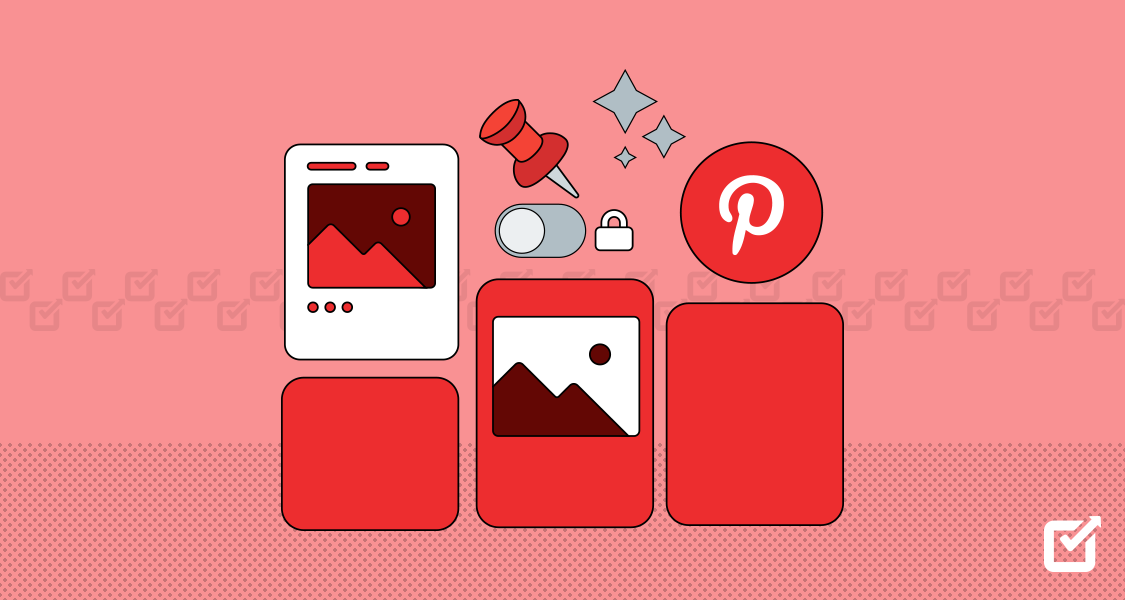Social media isn’t just for selling sneakers or concert tickets anymore.
It’s a great tool for businesses to connect with other businesses.
In fact, over 70% of B2B marketers saw a direct boost in sales from their social media efforts in the past year.
That’s a pretty great reason to try out B2B social media marketing, right?
In this post, we’ll give you the nitty-gritty on what works, what tools can boost your efforts, and why it matters for your business.

Manage Your Social World with Ease
Try Social Champ’s scheduling tool to post consistently on the platform. Watch your engagement rise with Social Champ!
But before we start, here’s a little secret: social media management doesn’t have to be time-consuming!
With a social media scheduler in your toolkit, you can schedule month’s worth of content in no time!
Let’s get started.
Short Summary
- B2B social media marketing attracts and converts businesses.
- For successful marketing, you must understand target audience needs, build relationships, and demonstrate value.
- Key differences from B2C include longer sales cycles, complex buying, and focus on ROI.
- Some strategies for B2B marketing include content marketing, lead generation, account-based marketing, relationship building.
- You can measure the success of your marketing efforts by assessing lead quality, conversion rates, customer lifetime value, ROI.
- Some tools to streamline B2B marketing include Social Champ, LinkedIn, Google Analytics, CoSchedule, Facebook, MeetEdgar.
What Is B2B Social Media Marketing?
B2B social media marketing is the strategic process of attracting and converting businesses into customers.
It involves understanding the needs and challenges of other organizations to effectively promote products or services that solve their problems.
When marketing to traditional businesses, there are a few factors that you need to consider, such as:
- Target Audience: Focuses on decision-makers within businesses.
- Goal: Build strong relationships and drive sales by demonstrating value and expertise.
- Channels: Utilize a mix of digital and traditional marketing tactics.
- Key Differences: Longer sales cycles, complex buying processes, emphasis on ROI.
- Strategies: Content marketing, lead generation, account-based marketing, and relationship building.
- Metrics: Measures success through lead quality, conversion rates, customer lifetime value, and ROI.
Featured Article: The Best Practices of Social Media Lead Generation in 2025
20 Best Practices for B2B Social Media Marketing
Mastering B2B social media marketing involves implementing key strategies.
Here are 20 best practices for B2B social media marketing:
Determine your Target Market
Understanding your target audience is foundational.
Define their demographics, pain points, and interests to tailor your content and engagement strategies effectively.
This clarity enables you to speak directly to their needs, enhancing engagement and conversion rates.
Relatable Content
Create content that resonates with your B2B audience by addressing their challenges, providing solutions, and showcasing industry insights.
Relatable content establishes your brand as a valuable resource, fostering trust and credibility among potential clients.
Highlight Your Employees
Showcase the human side of your business by highlighting employees’ expertise, achievements, and contributions.
This humanizes your brand, builds authenticity, and enhances connections with your audience.
Video Content
Video is one of the most trending concepts.
Research shows that 75% of people watch short-form video content while scrolling on mobile devices.
Considering this, you can use videos to convey complex ideas, showcase products or services, and share behind-the-scenes insights.
Video content is highly engaging and can significantly increase audience retention and interaction rates on social media platforms.
Define Your B2B Objectives
Clearly define measurable objectives for your B2B social media marketing, such as lead generation, brand awareness, or customer retention.
Setting specific goals allows you to align your efforts and track progress effectively.
Identify Social Media Platforms
Choose social media platforms where your target B2B audience is most active.
Facebook and LinkedIn are considered the first and second most important platforms for B2B.
That said, you should also consider platforms like X (Twitter) or Instagram, depending on your industry and audience demographics.
Integrate Influencers
Collaborate with industry influencers, KOLs, and thought leaders to amplify your brand’s reach and credibility.
Influencer partnerships can help position your brand in front of relevant audiences and drive engagement through trusted recommendations.
Employee Advocacy
Encourage employees to advocate for your brand on social media by sharing company updates, content, and achievements.
Employee advocacy humanizes your brand and expands your reach organically through their personal networks.
Measure ROI
Regularly evaluate the return on investment (ROI) of your social media efforts.
Track metrics like leads generated, conversion rates, and customer acquisition costs to assess the effectiveness of your campaigns and optimize future strategies.
Encourage User-Generated Content
Build a community around your brand by encouraging customers to create and share content related to your products or services.
User-generated content builds social proof, enhances brand credibility, and strengthens customer relationships.
Showcase Company Culture
Share insights into your company culture, values, and workplace environment.
Authenticity in showcasing your company culture attracts like-minded B2B partners and talent, fostering a positive brand image.
Spark Conversations
Initiate and participate in meaningful conversations within your industry.
Engage with your audience by asking questions, seeking opinions, and responding promptly to comments and inquiries.
Host Webinars and Live Events
Engage your B2B audience with interactive content, such as webinars, live Q&A sessions, and virtual events.
These platforms provide opportunities to showcase expertise, address industry challenges, and foster direct engagement with potential clients.
Participate in Groups and Communities
Join and actively engage in LinkedIn groups, professional forums, and industry communities where your target audience congregates.
Contribute insights and establish your brand as a knowledgeable authority within your niche.
Optimize Your Profiles
Ensure your social media profiles are fully optimized with relevant keywords, compelling visuals, and up-to-date contact information.
Optimized profiles improve discoverability and reinforce your brand identity to visitors.
Utilize Thought Leadership
Position your brand as a thought leader by sharing insights, research findings, and expert opinions on industry trends and challenges.
Thought leadership content builds credibility, attracts engagement, and cultivates trust with your B2B audience.
Listen to Your Customers
Actively listen to customer feedback and conversations on social media.
You can use a social listening tool to keep track of conversations around your brands.
Use insights gained to refine your products/services, improve customer experiences, and tailor your marketing efforts to better meet client needs.
Run Targeted Ads
Research shows that 65% of B2B organizations have procured clients through LinkedIn ads.
Therefore, you must use targeted social media advertising to reach specific B2B audiences based on job titles, industries, and interests.
You can also tailor your ad messaging to address pain points and provide solutions, maximizing relevance and engagement.
Engage With Value
Prioritize providing value in every interaction on social media.
Whether sharing content, responding to comments, or participating in discussions, focus on delivering helpful insights and solutions that resonate with your audience.
Use Data and Analytics
Using social media analytics to track performance metrics, understand audience behavior, and measure the success of your campaigns.
Data-driven insights enable you to make informed decisions and optimize your social media strategy for better results.
Featured Article: Weighing the Pros and Cons of Social Media: Is It Right for You?
5+ Tools for B2B Social Media Marketing
Navigating B2B social media marketing requires powerful tools to optimize campaigns, analyze performance, and engage with targeted audiences effectively.
Here are some amazing tools for social media marketing in 2024.
Social Champ
Social Champ is a social media management tool that enables B2B marketers to schedule posts and manage multiple social media accounts.
With this tool, you can schedule, publish, analyze, and engage with target customers from a single dashboard.
The platform also offers features like bulk upload, recycling, and auto RSS, ensuring you have a consistent flow of content on your social media pages.
It also offers an AI-powered best time to post tool to help you receive optimal engagement on your content.
Additionally, you can also listen to your customers via Social Champ’s social listening tool and stay on top of your brand’s mentions.
Essentially, Social Champ is an all-in-one platform for all your social media needs!

Social Champ’s dashboard
LinkedIn
LinkedIn is the leading professional networking platform ideal for B2B social media marketing.
It allows businesses to build their brand presence, connect with industry professionals, and generate leads through targeted advertising and content sharing.
B2B marketers utilize LinkedIn for thought leadership, employee recruitment, and networking within specialized groups and communities.
Its analytics tools provide insights into audience engagement and campaign performance, making it a valuable tool for B2B social media strategies.

LinkedIn Analytics Dashboard Google Analytics
Google Analytics is essential for tracking and analyzing website traffic driven by social media campaigns.
B2B marketers use it to measure the effectiveness of their social media efforts in terms of conversions, user behavior, and ROI.
By setting up goals and tracking social media referral traffic, businesses can optimize their content strategy and ad campaigns.

Google Analytics Dashboard CoSchedule
CoSchedule is a marketing calendar and project management tool that integrates social media planning with other marketing activities.
B2B marketers use CoSchedule to plan, execute, and analyze their social media campaigns alongside other marketing initiatives.
It offers features like content scheduling, collaboration tools, and performance analytics.
It allows teams to streamline workflows and maintain consistency across their social media channels.

CoSchedule’s homepage Facebook
Facebook remains a dominant platform for B2B social media marketing.
It offers robust advertising options, business pages, and groups for engagement.
B2B marketers can use Facebook to reach targeted audiences based on demographics, interests, and behaviors.
Features like Facebook Insights provide valuable analytics on page performance, audience demographics, and engagement metrics.
This helps businesses refine their social media strategies and improve campaign outcomes.

Facebook Insights MeetEdgar
MeetEdgar is an automation tool designed to recycle and repurpose evergreen content across social media platforms.
B2B marketers use MeetEdgar to create content libraries, schedule posts, and automate content sharing based on predefined categories and schedules.
This allows businesses to maintain a consistent social media presence without manually reposting content.
It frees up time for strategic planning and engagement with their audience.

MeetEdgar’s homepage
Featured Article: How to Leverage TikTok for Business Marketing in 2025
Conclusion
B2B social media marketing has evolved into a potent tool for driving business growth in 2024.
By implementing best practices, tools, and understanding the platform-specific nuances, you can build brand awareness, nurture leads, and foster strong customer relationships.

















2 thoughts on “B2B Social Media Marketing: Best Practices, Tools, and Benefits in 2025”
This is a fantastic resource! I’ve been struggling to figure out how to make B2B social media work for our company. This post is a goldmine of information. The section on LinkedIn strategies is particularly helpful. I’m definitely going to start implementing some of these tips. Thanks for sharing!
This is a comprehensive guide on B2B social media marketing! The best practices and tools you’ve highlighted are incredibly relevant